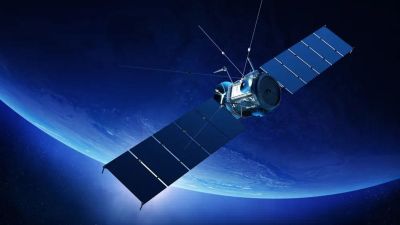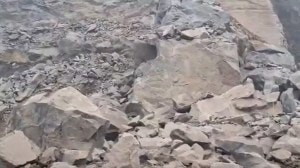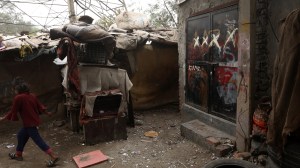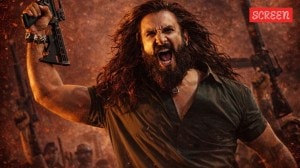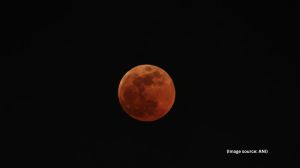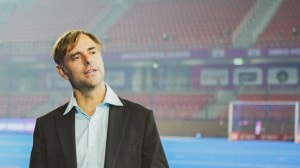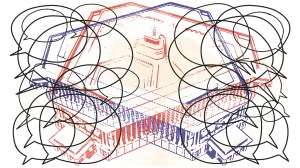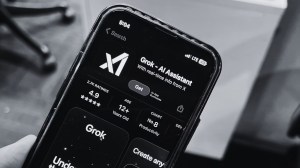Putin soft on CTBT, justifies Kudankulam project
MUMBAI, OCT 5: President of the Russian Federation Vladimir Putin went soft on India as far as the Comprehensive Test Ban Treaty CTBT wa...

MUMBAI, OCT 5: President of the Russian Federation Vladimir Putin went soft on India as far as the Comprehensive Test Ban Treaty CTBT was concerned. He indulged more in hardselling the Kudankulam 1000 MWe VVERs pressurised light water reactors which Russia is contracted to supply to India.
The President8217;s concern over CTBT was one of equivocation. quot;We would like to see India participating in CTBT,quot; he said for the sake of record but toned down the effect of his statement by asserting that he understood the compulsions of the stand India had taken.
Instead, Putin, for the most part of the speech, stressed on silencing the critics of the Kudankulam project. quot;As head of state,quot; he said, he recognised that the quot;economic and social concerns of any project are important.quot; He went on to add: quot;I8217;ll ask myself what are the repercussions on the common man, for the economy in general, for the environment.quot;
Then Putin, with a passing assertion that nuclear power technology is safe and reliable 8212; quot;I am impressed by India8217;s reactor safety recordquot; 8212; he offered the punchline to justify the project 8212; cheap electricity.
Putin said: quot;By the most modest estimates, the cost of one k/watt of power in the south of India, resulting from the Kudankulam project will fall by three times.quot;
Putin8217;s comments came while addressing the scientific community of the Bhabha Atomic Research Centre BARC at Mumbai on Thursday 8212; the first ever president from what was a former communist Soviet Bloc to do so. The only other dignitary to visit the hallowed echelons of India8217;s premier scientific institution during the era of communism was then Chinese Premier Chou en-Lai just after India8217;s first experimental reactor was commissioned in 1956.
The Russian President, clad in a black suit, accompanied by his Atomic Energy Minister Evgeny Adanov among others, spoke extempore for seven minutes.
The Russian President, who spent about one-and-half-hour on the BARC premises, described the establishment as a quot;temple of science and technology in the 21st century.quot;
Putin said interaction between India and Russia on peaceful uses of atomic energy dates back to early 19708217;s quot;and I am happy that it continues till datequot;.
Putin also visited research reactors Dhruva and Cirus. Atomic Energy Commission Chairman Dr R Chidambaram who gave the welcome address presented Putin with a memento, displaying the two research reactors.
BARC director and secretary-designate DAE Anil Kakodkar presented the customary thanksgiving on the occasion.
BARC antipathy towards Indian media comes to the fore
The anti-press syndrome of the BARC came to the fore once again 8212; and most shamefully. The members of the Indian Fourth Estate were kept closetted in a room at the BARC training hostel for nearly two hours peppered by biscuits and tea or coffee on demand.
Press persons were virtually herded like cattle and escorted under tight security to the conference hall within the BARC. No photographers were allowed. Only Doordarshan and the Films Division were allowed with their Betas inside. Photographs were taken by BARC appointed photographers.
Presspersons were stripped of their personal electronic diaries, mobile phones and tape-recorders. Protests fell on deaf years. The hard-pressed Dr A P Jayaraman, head, media relations was apologetic. quot;I am only following directions,quot; he said.
All this the presspersons would have swallowed but to their utter surprise a huge contingent of foreign press persons with cameras and betacams entered the hall from the quot;privilegedquot; side of the hall, supposedly sterilised for President Putin8217;s visit. This correspondent counted fifteen photographers with at least five video cameras. Many were seen with their mobile phones and personal diaries. And they moved about freely with security men watching indulgently in sharp contrast to Indian presspersons who were virtually quot;marchedquot; to the hall surrounded by securitymen both in uniforms and plain clothes.
Pallava Bagla, the Indian Correspondent for Science, who flew down from Delhi to cover the event was incensed. He demanded that he be allowed to bring in his camera as he represented a foreign magazine, but all his pleas were in vain. Bagla told Jayaraman: quot;You are acting as if we are a greater security risk than those foreigners.quot;
The MEA representative from Delhi washed his hands off the affair by asserting that there were no instructions issued to restrict the Indian press.
To add insult to injury, only the foreign press was allowed to interact with the visiting president according to the printed itinerary. This became evident when the entire contingent from abroad left the hall as soon as Putin8217;s speech was over. They were assembling in the adjacent hall to await the President in a question-answer-session. It is another matter that the actual interaction did not last long as the president was behind schedule by 15 minutes.
Said an insider:quot;These are instructions issued by the local bosses. They did not want the Indians to embarrass Putin with inconvenient questions.quot;
- 01
- 02
- 03
- 04
- 05


